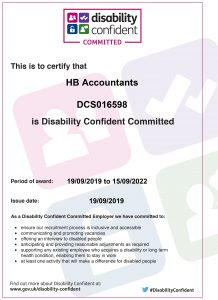Taking place at The Spotlight in Hoddesdon, Hertfordshire this November, the Ambition Conference, is designed to inspire local businesses to grow and excel. HB Accountants has been involved with this initiative from the outset and HB’s Keith Grover will be the Chair of the organising committee for the second consecutive year. We asked Keith why he thinks it’s worth the time, sponsorship and effort that he and the team at HB Accountants put in. Here’s what he said:
“This one-day event is important because it specifically benefits local businesses, local people and local charities. It’s designed to boost the performance of your team, company or group. That’s good for jobs, business performance and the local economy.

Continue reading →



